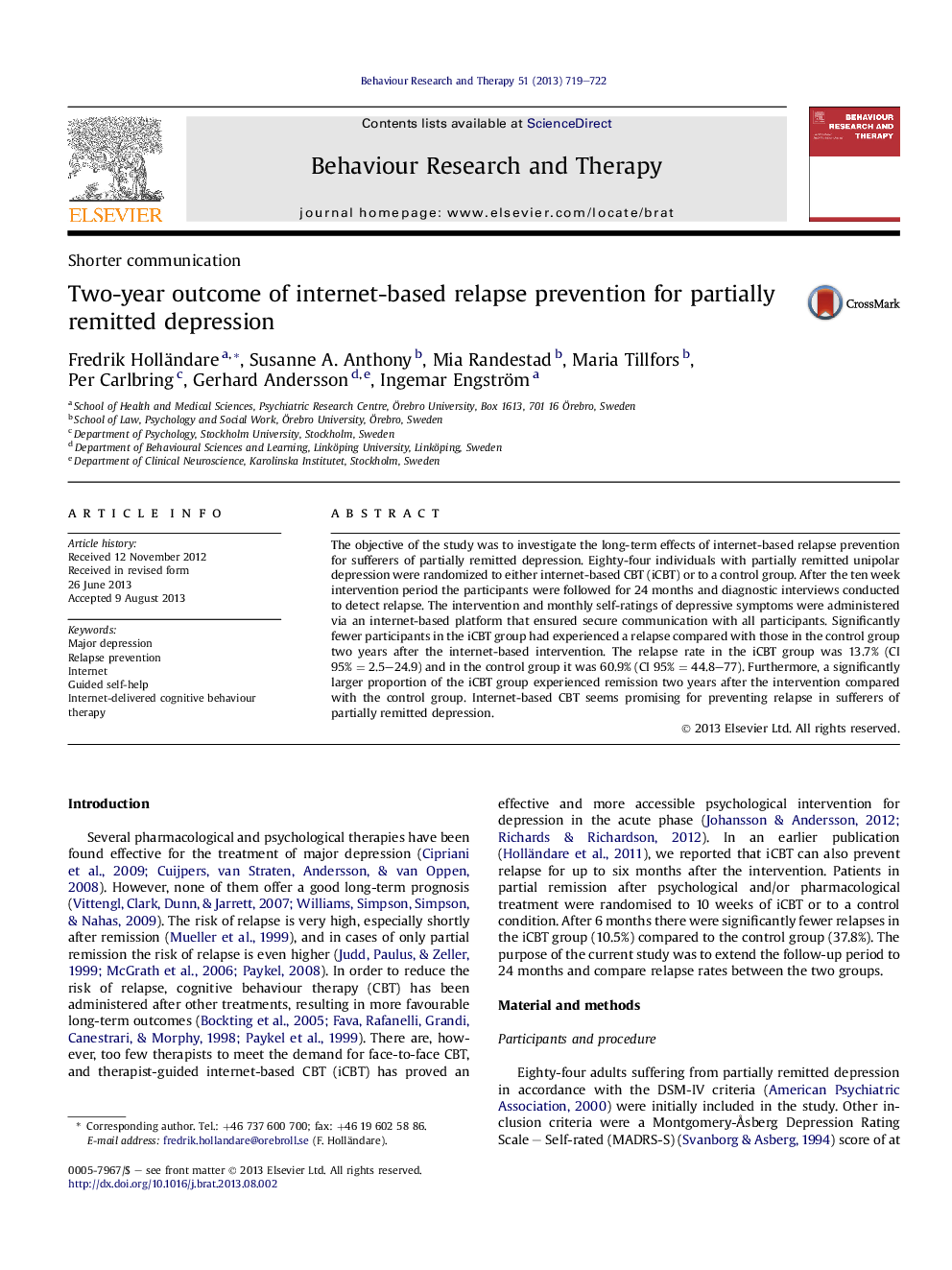| Article ID | Journal | Published Year | Pages | File Type |
|---|---|---|---|---|
| 10444460 | Behaviour Research and Therapy | 2013 | 4 Pages |
Abstract
The objective of the study was to investigate the long-term effects of internet-based relapse prevention for sufferers of partially remitted depression. Eighty-four individuals with partially remitted unipolar depression were randomized to either internet-based CBT (iCBT) or to a control group. After the ten week intervention period the participants were followed for 24 months and diagnostic interviews conducted to detect relapse. The intervention and monthly self-ratings of depressive symptoms were administered via an internet-based platform that ensured secure communication with all participants. Significantly fewer participants in the iCBT group had experienced a relapse compared with those in the control group two years after the internet-based intervention. The relapse rate in the iCBT group was 13.7% (CI 95%Â =Â 2.5-24.9) and in the control group it was 60.9% (CI 95%Â =Â 44.8-77). Furthermore, a significantly larger proportion of the iCBT group experienced remission two years after the intervention compared with the control group. Internet-based CBT seems promising for preventing relapse in sufferers of partially remitted depression.
Keywords
Related Topics
Health Sciences
Medicine and Dentistry
Psychiatry and Mental Health
Authors
Fredrik Holländare, Susanne A. Anthony, Mia Randestad, Maria Tillfors, Per Carlbring, Gerhard Andersson, Ingemar Engström,
